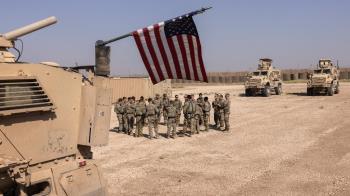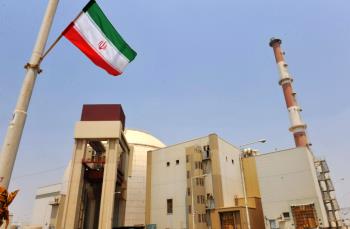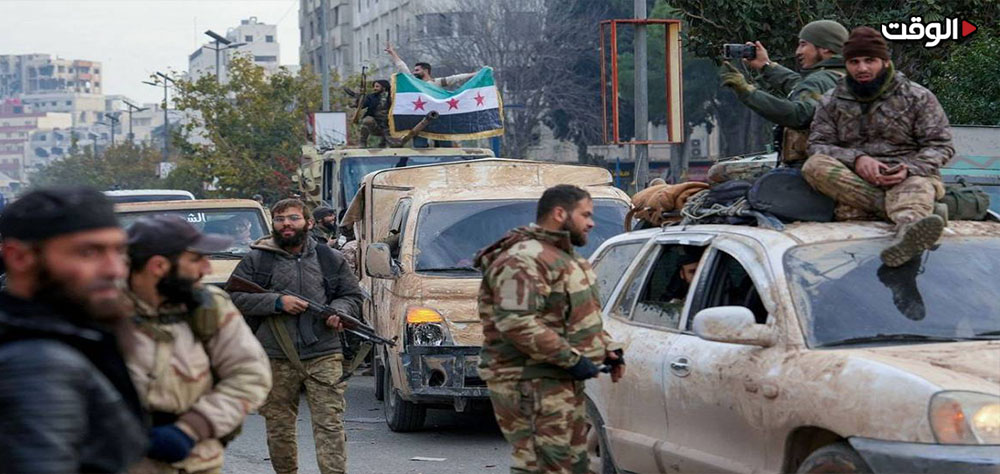Alwaght- While after fall of President Bashar al-Assad and rise to power of the armed groups in Syria the Syrians hoped that the security will be protected and there will be no sectarian and political score settling as the militants promised, shortly later the people have sunken into disappointment as a result of actions of the ruling Hayat Tahrir Al-Sham (HTS).
The international community since the beginning of HTS rule has been doubtful about the promises of the group's leaders about the governance with presence of all Syrian minorities, and now their concerns are materializing.
In recent days, attacks by armed groups on minorities have become a routine. Although the Arab and Western media, by showing the leaders of the HTS in civilian clothes and ties, try to pretend that these people have forsaken their previous policies and approaches and in other words became civilized, the reality on the ground and the systematic brutal methods of assassination, humiliation, looting and burning of private property cannot hide their true colors for a long time.
With the transition of power to HTS-led armed groups with the black record of ideological radicalism and their roots in Al-Qaeda terrorist group and also with resurface of violence and sectarianism of these armed groups, many religious minorities in Syria express their extreme worry about their future.
Alawites, under HTS focus
Ahmad al-Sharaa, better known for his nom de guerre Abu Mohammad al-Jolani, appears in front of cameras and promises respect for democracy, rights of the minorities, and holy shrines while his loyalists are doing vise versa. As predicted, the Alawites were the first minority that fell victim to the violence of the armed groups.
In this connection, on Wednesday, a number HTS members raided the shrine of Abu Abdullah al-Hussein bin Hamdan al-Khasibi, the world’s leading Alawites religious authority, and set fire to this sacred Alawite site, killing five servants stationed at the shrine.
Following this criminal act, angry Alawites attacked the Tartous provincial council building, and other protesters also continued their protests in other parts of Syria, such as Damascus and Homs. These were the first Alawite protests against armed groups since the fall of al-Assad.
Following these protests, a media outlet close to the ruling coalition of armed groups published a video stating that the militants were clearing Latakia and Tartus by capturing 100 “pro-Assad forces.”
The HTS forces tortured and humiliated the Alawites by calling them “pigs” and “dogs” and by claiming that they had played a role in the unrest. A protesting Alawite representative said during the demonstration: “We are the second largest religion in Syria and we will not allow religious and racial pressure to be exerted on us and armed men to assault our women.”
Violence against the Christian minority
Crackdown on the minorities was not limited to the Alawites and other religious minorities have protested mistreatment by the HTS armed men. A number of the group's fighters last week burned a Christmas tree in Hama and published its images, outraging the Christian minority.
In order to clear itself, the group claimed that remnants of al-Asssd government were behind the Christmas tree burning, but local residents filmed the incident on their phones and confirmed that those who burned the tree in their city were members of the HTS, Uzbeks, and foreign nationals.
The Christmas tree burning is not the only incident that has become a cause for concern for the Syrian people as a result of the actions of armed groups. Breaking into homes, the seizure of personal property and cars, and scenes of torture and humiliation of Syrian army soldiers are also among the issues that have inflamed worries about the actions of the new rulers.
On the other hand, sectarian clashes and the harassment of girls not wearing hijab since the fall of al-Assad, as well as the shooting of civilians in the streets to spread terror, have caused immense anxiety among the people.
Securitization of society under the ruse of prosecution of elements of previous government
Seeking to tighten its grip on power in Syria, the HTS is seeking to securitize the conditions of the country to nip in the bud any threats to the future of their rule. They actually follow this policy under the ruse of arresting the elements and political and military leaders of al-Assad government. To this end, the HTS established its security organization in the first step to institutionalization.
The security forces launched a major operation in the provinces of Latakia and Tartus on Saturday, claiming to have received reports of the presence of elements affiliated with previous government .
The new security organization announced the arrest of Major General Hussein Juma, the commander of the Hama police in the al-Assad government. The interim government claimed that a number of weapons had been seized from individuals affiliated with previous rule.
In other parts of the country, the operation to purge the remnants of the previous government has been intensified in order to remove the former army forces and pave the way for the formation of the armed forces they favor. The Syrian Operations Directorate said that the deadline for al-Assad loyalists to hand over their arms has ended and anyone defying the order will be considered an outlaw.
As can be seen from the content of some media outlets, elements affiliated with armed groups are trying to pass these people off as remnants of the former regime by creating insecurity in some city squares and publishing videos of it, and thereby securitizing the country and arresting previous army forces.
In the al-Assad government, the Alawites formed the backbone of the army's manpower. In the past decades, the Syrian army has been the protector of Syria's territorial integrity against the Israeli expansionism and Foreign-backed terrorist groups.
Certainly, the elimination of the Alawites from the army will completely weaken Syria's defense capabilities. Therefore, the HTS's actions show that, contrary to its claims of being prepared to defend the Syrian territory, this group is acting more as a proxy group serving interests of Israel and Turkey as main actors of current Syrian developments.
Tahrir al-Sham members usually film these alleged violations themselves and brag about them, which, according to experts, means two things for Syrians: First, al-Jolani has no control over the armed groups and they are now behaving as they wish. And second, the interim government plan is based on a fake plan and is being done solely to deceive the masses and provide regional and international legitimacy to the new regime, and that the policy of suppressing the minorities will be pursued with greater intensity in the future.
New officials in Damascus are trying to assure various minorities that the future government will be for all and without discrimination. But, the actions of armed groups in recent days have proven that thoughts and ideologies of these groups have not changed and if they officially take power, they will rule Syria with salafi and takfiri thoughts.
Consequences of violence against religious minorities
The actions of the rebel groups against religious minorities, especially the Alawites and Christians, come at a time these minorities have deep roots not only in the army but also in the bureaucratic structure, the academic and scientific system of Syria, and also in the art of the country.
These minorities have played a fundamental and indispensable role in the political and bureaucratic structures of the country over the past five decades. Therefore, the HTS's attempt to isolate the minorities will practically disrupt the cycle of governance, bureaucracy, economy, sports, culture, etc, and the crisis of efficiency and legitimacy will become more acute.
Although the Arab and Western countries that previously supported the rebel groups have turned a blind eye to the suppression of the Alawites with the aim of weakening the foundations of the resistance in Syria, if these violence and killings continue and expand, they will not be without cost and consequences for the HTS and its allied groups.
The continuation of this violence will infuriate the minorities across Syria, and as protests intensify, the new government will be built on shaky foundations from the start and will not last long. Some experts even believe that these actions by the HTS may deepen the gap between the Syrian Alawites and Turkey and come costly for the interim government and even Turkey.
On the other hand, experience of the past three years in Afghanistan has shown that the international community sets respect to the rights of minorities and their real participation in the power as the fundamental condition for recognition and even sanctions relief. This approach is also expected to be applied to new Syria rule and therefore the empty and beautiful rhetoric cannot make basis for international community's decision on new Syrian government.
Meanwhile, obvious HTS's laying down arms in the face of foreign occupation along with stepping up internal crackdown is likely to increase possibility of expansion of coalition of resistance nuclei against the new regime in Damascus. As resistance leaders suggest, the Syrian youths will free themselves of the takfiri-minded rebel rule, as the Syrians in Daraa in Quneitra protested against Israeli occupation in the two provinces while new leaders of Damascus have turned a blind eye to the Israeli incursions.



























